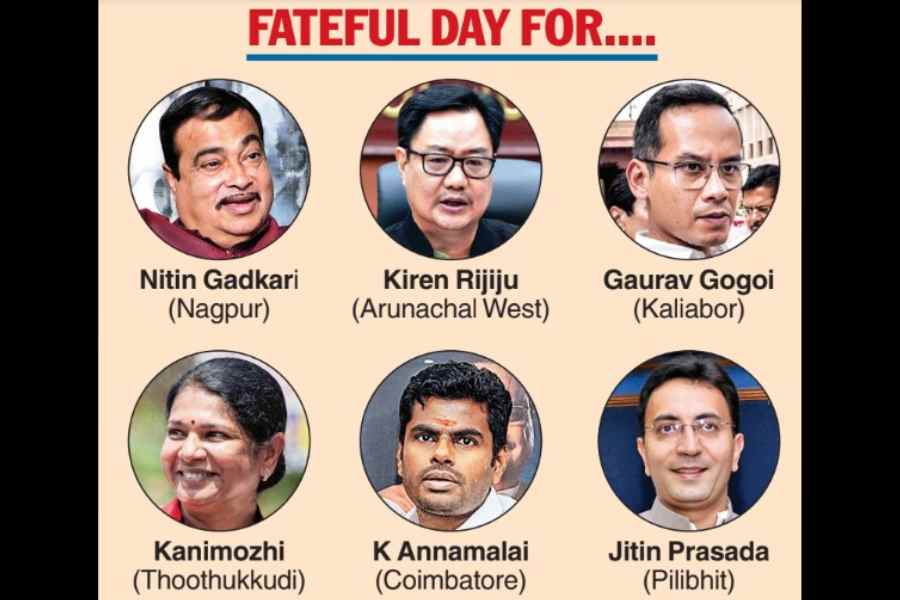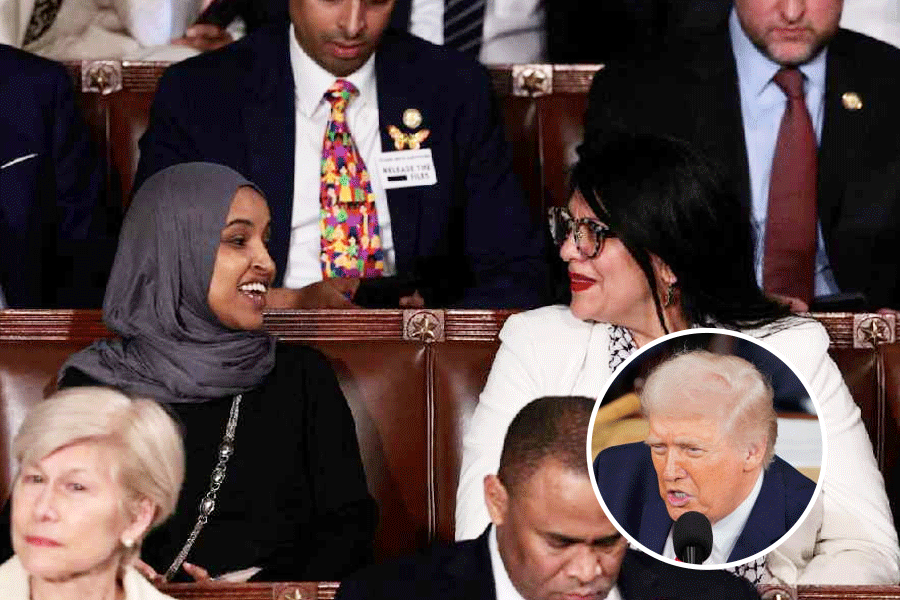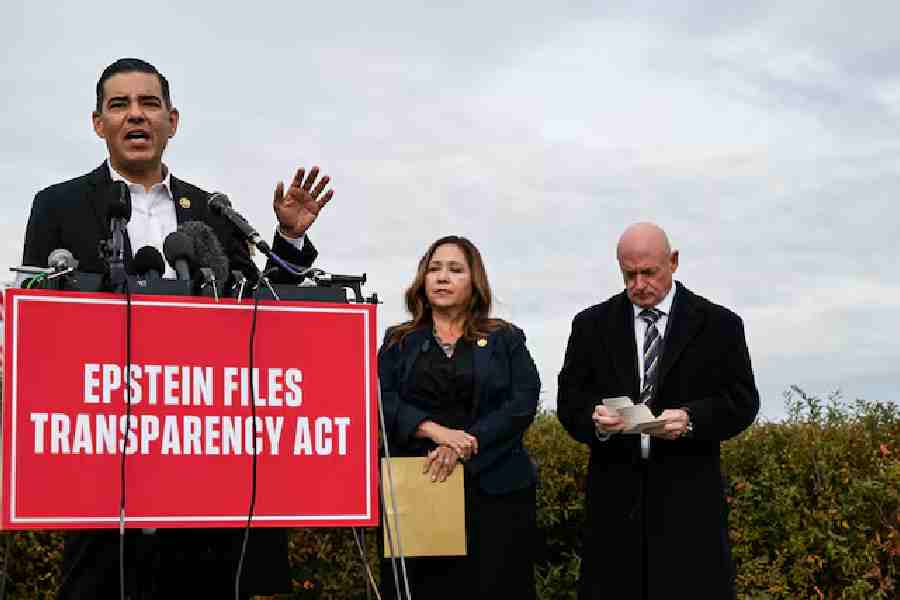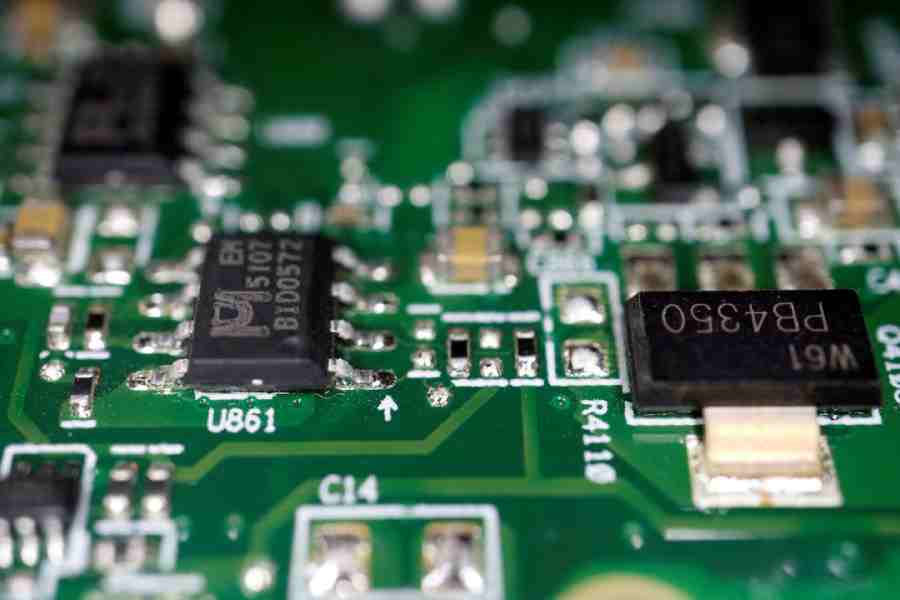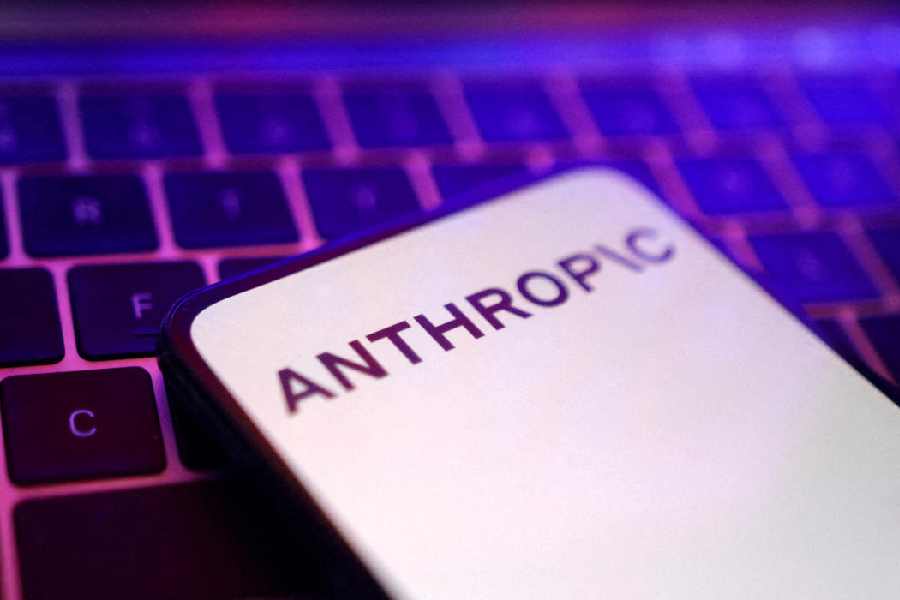The curtain is poised to rise on the planet’s largest election that India’s Opposition parties and much of the world have billed a battle to save democracy while the government’s supporters dub it a foregone conclusion bar the victory margin.
Indians will on Friday vote in the first phase of a seven-leg general election that will stretch across six weeks, throwing up mind-boggling logistics.
Some 16.63 crore voters will be eligible to vote in 102 constituencies spread across 21 states and Union Territories in the first phase. Forty-one helicopters, 84 special trains and nearly 1 lakh vehicles will be deployed to ferry 18 lakh polling officials to 1.87 lakh polling stations, the Election Commission said.
Arunachal Pradesh and Sikkim will also have Assembly polls on the same day.
Apart from these two northeastern states, those voting in the first phase of the general election will be Uttarakhand, Uttar Pradesh, Rajasthan, Madhya Pradesh, Maharashtra, Chhattisgarh, Bihar, Bengal, Assam, Meghalaya, Manipur, Mizoram, Nagaland, Tripura and Tamil Nadu. The Union Territories to vote will be Jammu and Kashmir, Puducherry, Lakshadweep, and the Andaman and Nicobar Islands.
In 2019, the BJP had bagged 40 of these 102 seats, the DMK had won 24 and the Congress, 15. This time the BJP has fielded 77 candidates, the Congress 56 and the DMK 22 in these seats. A total of 1,625 candidates are in the fray.
The election kicks off with parts of the country facing a heatwave — a subject that seemed to weigh on Prime Minister Narendra Modi as he sent personalised letters to NDA candidates on Wednesday.
In his letter to Tamil Nadu BJP president K. Annamalai, candidate for Coimbatore, Modi said: “I am aware that the summer heat poses problems to everyone…. Therefore, I appeal to the voters to cast their votes early in the morning, before the heat sets in.”
Among the prominent candidates whose fates will be decided on Friday are several Union ministers from the BJP: Nitin Gadkari from Nagpur (Maharashtra), Kiren Rijiju from Arunachal West, Sarbananda Sonowal from Dibrugarh (Assam), Sanjeev Baliyan from Muzaffarnagar (Uttar Pradesh), Jitendra Singh from Udhampur (Jammu and Kashmir), L. Murugan from Nilgiris (Tamil Nadu), Bhupendra Yadav from Alwar (Rajasthan) and Arjun Ram Meghwal from Bikaner (Rajasthan).
Junior Union minister Nisith Pramanik of the BJP is contesting from Cooch Behar, one of the three Bengal seats to feature in the first phase.
Gaurav Gogoi, the Congress deputy leader in the Lok Sabha, is contesting from Jorhat, Assam. Former Congress Union minister Jitin Prasada, currently a BJP minister in Uttar Pradesh, has been fielded from Pilibhit. He replaces the incumbent Varun Gandhi.
Former chief ministers Biplab Deb (BJP) and Nabam Tuki (Congress) are contesting from Tripura West and Arunachal West, respectively. Former Tamil Nadu chief minister O. Panneerselvam — expelled from the AIADMK and now an NDA-aligned Independent — is in the fray in Ramanathapuram.
Former Telangana governor Tamilisai Soundararajan is contesting on a BJP ticket from Chennai South.
The other important candidates in Tamil Nadu include the DMK’s Kanimozhi from Thoothukudi and Congress MP Karti Chidambaram from Sivaganga.
Former Madhya Pradesh chief minister Kamal Nath’s son Nakul Nath — the richest candidate in this phase with more than Rs 716 crore in assets — is contesting from Chhindwara for the Congress.
Late Union minister Ram Vilas Paswan’s son Chirag Paswan is contesting from Jamui, Bihar, on behalf of the Lok Janshakti Party (Ram Vilas).
The Assembly polls in Arunachal and Sikkim, while not quite “Congress-mukt”, will see the main Opposition party contesting less than half the seats.
Ten BJP MLAs in Arunachal, including chief minister Pema Khandu and his deputy Chowna Mein, have already been elected unopposed to the 60-member House.
The national parties had drawn a blank in Sikkim the last time, with the Sikkim Krantikari Morcha ending the 15-year rule of the Sikkim Democratic Front. The BJP retained Arunachal.
Two issues that have led many parts of the world to keep their eyes peeled on this Indian election — the Modi government’s perceived divisiveness and intolerance of criticism — were underlined again in the run-up to the first phase.
Congress president Mallikarjun Kharge on Tuesday reacted to Modi’s jibe in Mysuru two days earlier that the Congress was the “sultan of the tukde tukde gang”.
“Tukde tukde gang” is a Right-wing coinage that portrays ideological opponents, particularly the leftist students of JNU, as people intent on breaking the country up.
Kharge told PTI: “The real sultan of the tukde tukde gang is Modi. He is dividing a country on the lines of caste, religion, creed.”
The Congress has complained to Karnataka’s chief electoral officer against Modi’s remark.

